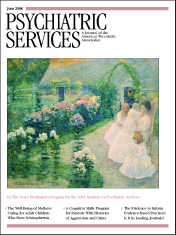The major focus of Spirituality and the Black Helping Tradition in Social Work is the extent to which spirituality in the black helping tradition has implications for social work practice with individuals, groups, and communities of African descent. Elmer P. Martin and Joanne M. Martin have published extensively in the field of social work, with a particular emphasis on the black family. Their focus on early black caregivers' and pioneering social workers' use of spirituality in their work with black people is a rich resource for the varying fields of mental health practice to understand the historical context of race and oppression in working with African Americans.
The authors identify several key concepts around which the chapters are organized: defining the black helping tradition as the independent struggle of black people to collectively promote their survival and advancement from one generation to the next; black spirituality as the sense of the sacred and divine that motivates and uplifts black people and endows them with dignity, meaning, and hope as they seek to transcend and transform soul-destroying, life-threatening systems; how black spirituality supersedes and overarches organized religious and denominational ties; and, finally, how the caregiving personality comprises the spiritual, racial, and communal selves as components of the total caregiving or helping self.
These concepts clearly inform the development of themes throughout the text. Chapters 2 through 6 provide clear and thoughtful integrations of historical, philosophical, sociological, and psychological scholarship on religions and spirituality for Africans in America. The chapters on "race work," which was an effort by 19th-century black people to advance the survival, liberation, and well-being of black persons, uses examples from the biographies of prominent black men and women to provide an excellent history of the impact of this movement on social work practice with black people. These chapters offer an important presentation of the evolution of an African-centered paradigm. The authors' analysis of the paradigm shift from Eurocentric to African centered is conceptually sound and affords a creative, complex understanding of racism and the capacity of a spiritually oriented helping tradition to be most useful for black clients.
Chapters 9 and 10 provide an assessment of the limitations and strengths of mainstream social work in dealing with black spirituality and offer paradigms that include spirituality in the intervention process at the micro, mezzo, and macro levels. Mental health professionals will find these chapters particularly useful for understanding the larger context of assessment and intervention with black clients.
In conclusion, Spirituality and the Black Helping Tradition in Social Work offers a worthwhile perspective for those who are interested in moving from a Eurocentric perspective on the African-American experience. I strongly recommend the text and trust that a range of students, scholars, and clinicians will find the context informative, stimulating, and useful in working with black individuals, groups, and communities.

